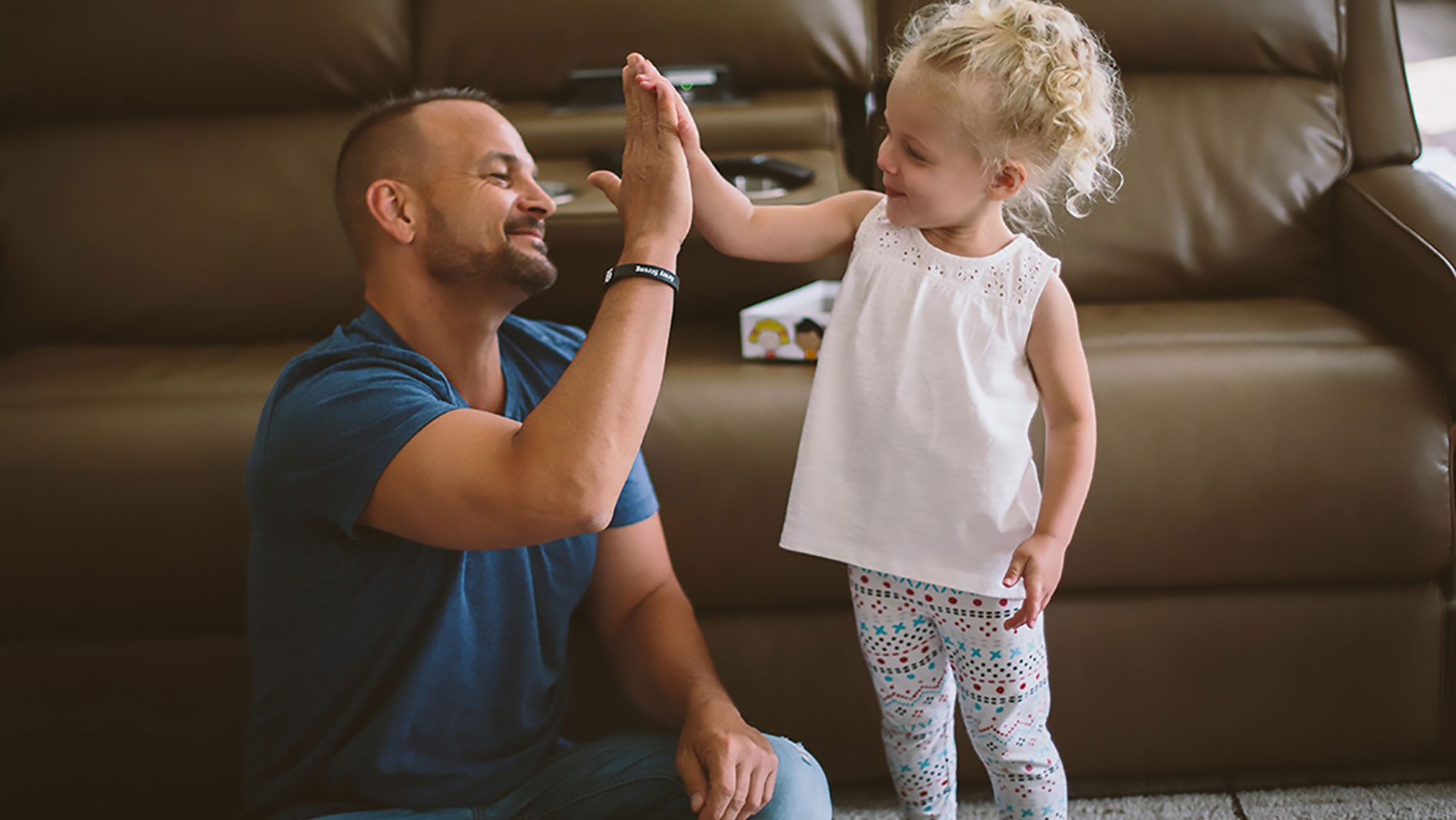Share Article
Chuck was in good health and had just welcomed a baby daughter when he received startling news: He had stage 4 follicular lymphoma, an indolent form of non-Hodgkin lymphoma in which malignant tumors slowly grow, but can become more aggressive over time.
“That diagnosis was so scary,” he remembers. “They showed me the PET scan and it lit up like a Christmas tree. I was told I wouldn’t live long without chemotherapy. There are many emotions and things you go through. Your family and your friends go through them as well.”

Chuck with his daughter Gabriella, who was 6 months old at the time of his diagnosis.
Chuck’s chemotherapy treatments lasted seven months, and on more than one occasion he was admitted to intensive care for fevers. In the end, the treatments were successful. Chuck went into remission. In the months afterward, he returned to a fairly normal life, but he found himself diving deep into research about his disease.
“I joined chat groups, support groups and reached out to anybody that I could talk to,” he says. “I thought the cancer could come back, so I felt I owed it to my family to make sure that I educated myself on clinical trials and innovative treatments.”
After about a year in remission, the cancer returned.
This time, Chuck was referred to an oncologist at an academic cancer center to discuss his options. The oncologist mentioned a clinical trial the center was conducting that involved chimeric antigen receptor (CAR) T-cell therapy. The innovative treatment involves engineering a person’s own white blood cells to fight cancer, and it has been shown to be effective for some people with certain types of non-Hodgkin lymphoma.
Chuck was grateful he had the option to participate in the study. CAR T therapy had appeared in his research, and he knew all about it. He did one more round of chemotherapy. The chemotherapy didn’t work – and two months later, Chuck enrolled in the CAR T study. After enrolling in the study, his cancer went into remission and three years later, he remains in remission.
Shortly after participating in the CAR T trial, Chuck began sharing his personal experience through online cancer forums. In the years since, he has become an advocate, speaking about his journey at conferences across the country and getting involved in Kite’s Patient Leadership Council to empower others facing a lymphoma diagnosis through peer-to-peer support.
“There are a lot of scared people that go into a doctor’s office,” he says. “I think it’s important to establish a network where people – whether they're undergoing CAR T or any other treatment – are able to talk to a peer who speaks from the heart and from experience.”
Today, Chuck still receives routine scans, but he’s largely gone back to his regular life. He and his wife recently welcomed their second child, and he credits CAR T with giving him a new lease on life.
“If you'd have told me five years ago that I’d still be here, I wouldn’t have believed it,” Chuck says. “I truly believe that if I would have taken a different route of treatment, there's a good chance I could not be here right now – so it’s time for me to support others.”

